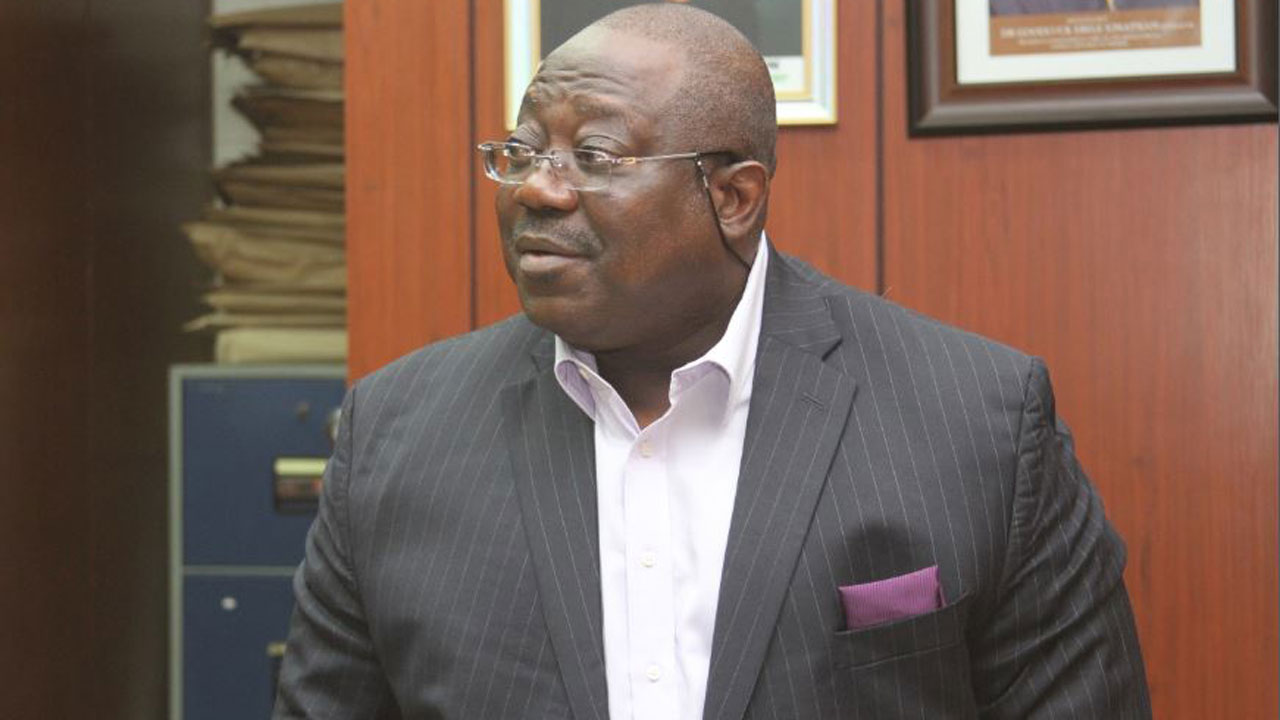
“Nigeria could, however, follow another path. Its potential is huge. Its tremendous wealth, if properly channeled, holds out the hope that a stable government could unleash the unquestioned energy and talent that pulsates through the rich ethnic mosaic. The human capital is there.
“Thousands of Nigerian professionals are well educated and skilled enough to drive the country forward. Anyone who visited Nigeria’s markets and witnessed its people endure the constraints of bad government and the sinking economy can testify to the country’s resilience.
“Nigerians spend a good part of their lives trying to get the better of the government for their own benefit or that of their family, their village, or their region. Rare is the head of state who acts on behalf of the entire nation. The people are not so much governed as ruled. It is as if they live in a criminally mismanaged corporation where the bosses are armed and have barricaded themselves inside the company safe. Nigeria’s leaders, like the colonialists before them, have sucked out billion of dollars and stashed them in Western banks”, Karl Maier wrote in his book, “This House has Fallen—Nigeria in Crisis.”
In the last couple of years, Nigeria has been confronted with enormous national crisis that could only be compared with the crisis of the 1960s, which eventually led to civil war. In fact, if one reflects on what the country went through from after the annulment of the June 12, 1993 presidential election up to the demise of General Sani Abacha, one must thank God that Nigeria still survives as one united nation.
Nigeria’s problem is not just economic. Indeed, it is largely political. Nigeria is still undergoing the crisis of nation building.
It is important that Nigeria policy makers appreciate the enormity of the crisis of nation building still staring at us as a nation. I don’t like to sound alarmist or pessimistic but some of the unresolved conflicts in our country have the potential of escalating into unimaginable proportions at any given time.
The events leading to the return to democracy in Nigeria could only be understood as a divine intervention. Before then the fate of Nigeria, as a country, was precariously hanging in the balance. The country was a pariah nation among the international community. The economy was in doldrums.
The Obasanjo’s Presidency experienced chaos in many fronts. These included communal violence, notable case include, Ife-Modakeke, Umeleri-Agulri, Huasa-Zango-Kantaf, Kuteb-Jukun clashes, etc. There was also the Bakassi issue, the Niger Delta crisis and ethnic separatism.
The second major crisis of the Obasanjo’s Presidency was the issue of oil subsidy, which was triggered by the Nigerian Labour Congress (NLC), then led by Comrade Adams Oshiomhole. The strike action paralysed the country for days if not weeks. Former President Olusegun Obasanjo was forced to set up a special committee on the review of Petroleum Products supply and distribution. The committee was inaugurated on August 14, 2000 by the then Secretary to the government of the Federation, Chief Ufot Ekaette.
The committee was headed by my friend, Chief Rasheed Gbadamosi while the secretary of the committee was Chief Segun Ogunkua from Akure in Ondo state, who retired later as the Permanent Secretary, Ministry of Finance. The other members of the committee were Mr. Adams Oshiomhole, Mr. Sylvester Ejiofor, Issa Aremu, Mr. Lucas Damulak, Mr. Joseph Akinlaja, Umaru Ndanusa, Chief Rufus Giwa, Dr. Imo Itsueli, Dr. Pat Utomi, Alhaji Abba Gana, Chief Nkem A. Ekwechi, Mr. S.O. Luwoye, Professor Emmanuel Edozien, Professor Dotun Phillips. Others were, Alhaji Ahmed Chanchangi, Chief D.K.O. George Taylor, Chief (Dr.) E.O. Ilodibe, Pastor E.O. Ogun, Mrs Emily Aig-Imokhuede, Chief Richard Uche, Mr. Ray Ekpu, Chief M.O. Onoja (M.M. Jir), Mr. A.S. Okoye, Dr. Samaila M. Kewa, Mr. Funso Kupolokun, Mallam M.S. Bashar, Dr. Titus Adeboye, Mr. C.O. Iwuozor, Mallam Wada Maida, Alhaji A. Umaru, Mr. G.D. Loma, Dr. S. Usman, G.M. Anyanwu and Alhaji G.Hamman.
The following recommendations were made—there is a concentration on the importation of Premium Motor Spirit (PMS) to the detriment of Kerosene and Diesel, which are equally critical. All sectors and people should be satisfied; there is need for major maintenance of industry infrastructure to stem the tide of low-capacity utilisation and output. Non-availability of needed fuel to power the machines was identified as one of the biggest problems; bureaucracy and politics could be a hindrance to running an efficient and profitable oil sector. Government overbearing influence on the sector should be reduced.
Persistent sabotage of the pipelines, though a new phenomenon, has overwhelmed and tasked the ingenuity of the leadership of the nation’s petroleum agencies. Unless a quick solution is found to this problem, it would be extremely difficult to truck fuel to all parts of the country; government’s involvement in the downstream sector of the oil industry requires a new and more pragmatic approach that gives more opportunities to the private sector. In order words, the sector should be deregulated just as we have seen in the Nigerian Airways and the upstream sector of the oil industry.
Dislocation in the production, supply and distribution of petroleum will continue for as long as government takes the commanding heights in the economy. Prices should find their level based on supply and demand; If and when a decision is taken on the issue of the inevitability of deregulating the oil sector, timing and adequate public enlightenment would be the key to success.
Repair of the Nigerian four refineries is very essential as continued massive importation is merely a way of keeping the foreign refineries working. If they are brought back on stream, they will put many Nigerians back to work with the added advantage of better-quality fuel; the government agencies concerned with the petroleum sector, the Department of Petroleum Resources in particular and the Nigerian National Petroleum Corporation (NNPC) to a lesser degree requires greater autonomy to perform their jobs creditably.
Government should explore the possibility of using more foreign crude and sell more of Nigeria’s high quality crude to bring down the price; to curb the problem of vandalisation, the principal actors in the oil sector would need to intensify their community relations programmes such that it creates employment, quality life and sustainable development in their operational areas; if and when the oil sector is deregulated, there would be need for a price monitoring agency that would be saddled with making public the movement in the prices of fuel just as obtains in the money market today.
The three tiers of government stand to gain immensely from a deregulated oil sector as they can introduce taxes that would help the economy grow; the availability of petroleum products in the right quantum and time are the only determinants of the performance of the major and independent marketers; the government should develop a comprehensive Energy policy to guide the oil sector and also to provide a basis for evaluation; the private sector is not necessarily the panacea of the problems bedeviling the oil sector.
Both the public and private sectors would complement the other for a better and well-integrated economy; government should restrict itself to providing the necessary infrastructure and enabling environment for good business in the downstream and upstream sectors of the oil industry.
If the recommendations by the committee had been fully implemented, I am sure the Petroleum crisis would have been resolved by now. As it is customary, we have a government in Nigeria that does not listen to itself.
To be continued tomorrow.






